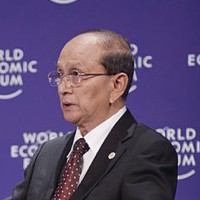Following the United States’ restoration of diplomatic relations with Myanmar and the European Union’s relaxation of economic sanctions targeting Naypyidaw earlier this year, international investors have lined up to discuss opportunities for future investment in the resource-rich country, which boasts the world’s 10th-largest natural gas reserves. However, substantial hurdles must be overcome if Myanmar is to join the ranks of Indonesia, Singapore, Malaysia, Thailand and South Korea as the next Asian tiger economy.
In an address at the World Economic Forum in Bangkok earlier this month, Myanmarese opposition leader Aung San Suu Kyi raised a red flag for potential investors when she called for “healthy skepticism” regarding Myanmar’s readiness to provide a stable judicial and regulatory environment for business. Her warning represents a stark contrast to the overwhelming optimism coming from regional analysts such as the Asian Development Bank.
In April, Suu Kyi marked her return to politics with a landslide victory in Myanmar’s parliamentary by-election, leading her fellow National League for Democracy (NLD) candidates to take 43 out of 45 seats at stake. Still the most recognizable figure in the country, the democracy advocate and Nobel Peace Prize laureate’s speech in Bangkok was her first public assessment of the economic and political reforms set in motion by President Thein Sein after his military-orchestrated election in February 2011.

